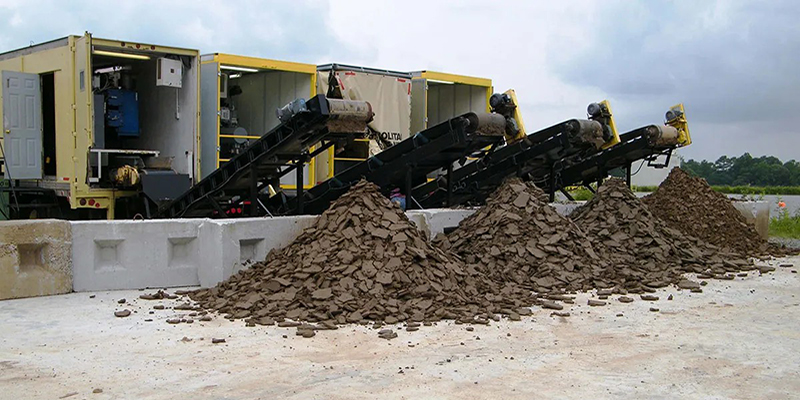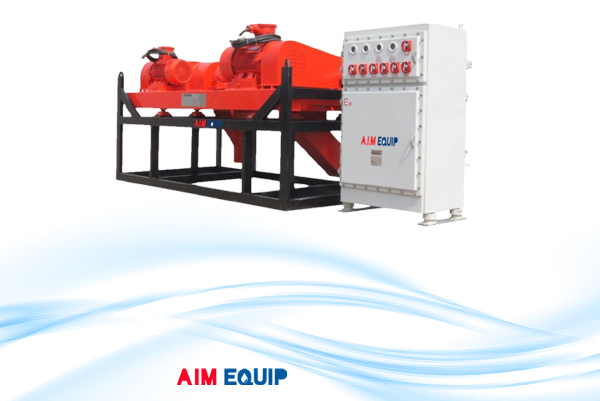Sludge dewatering is a crucial process in wastewater treatment, aimed at reducing the volume and weight of sludge generated from industrial and municipal facilities. By effectively removing water content, sludge dewatering minimizes disposal costs, enhances environmental sustainability, and improves overall operational efficiency. Various industries, including food processing, pharmaceuticals, and manufacturing, rely on this process to manage waste more effectively while complying with environmental regulations.
Why Sludge Dewatering is Essential?
Sludge dewatering offers numerous advantages, making it an indispensable part of wastewater treatment. Key benefits include:
- Volume Reduction: Significantly decreases the amount of sludge, reducing transportation and disposal costs.
- Lower Environmental Impact: Proper dewatering helps minimize landfill waste and prevents groundwater contamination.
- Cost Savings: Reducing moisture content lowers the weight of sludge, leading to savings in handling and disposal expenses.
- Efficient Water Recovery: Facilitates the extraction of water, which can be recycled for other industrial applications.
Sludge Dewatering Methods
Several techniques are used to achieve effective sludge dewatering, each suited to different types of sludge and industry requirements. Below are the most widely used methods, along with their advantages and typical applications:
1. Belt Filter Press
A belt filter press is a continuous dewatering process that uses two moving belts to press sludge between them, squeezing out excess water. The process involves several stages, including gravity drainage, low-pressure dewatering, and high-pressure dewatering using rollers. This method is widely used in municipal wastewater treatment plants and industries where large volumes of sludge need to be processed efficiently. It provides high throughput and relatively low operating costs.
AIMEQUIP’s Belt Filter Press Dewatering system is engineered for reliable performance, low energy consumption, and high dewatering capacity. It features Australian design and engineering, ensuring quality and efficiency.
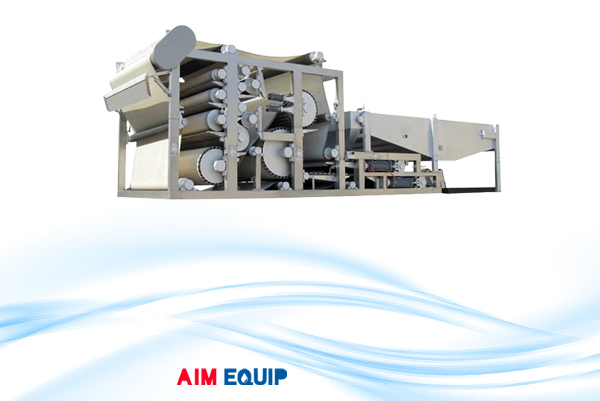
2. Centrifuge Dewatering
Centrifuge dewatering works by spinning sludge at high speeds, using centrifugal force to separate water from solids. The heavier sludge particles move to the outside of the rotating drum, while water is forced to the center and discharged. This method is highly efficient for thick sludge and is commonly used in industrial applications. It offers high dewatering efficiency, although it requires significant energy input.
AIMEQUIP’s Decanter Centrifuge is designed for high-performance sludge dewatering, efficiently separating solids from liquids through centrifugal force. It provides continuous operation with minimal supervision, making it an excellent choice for industries requiring reliable and effective sludge management.
3. Screw Press Dehydrator
A screw press uses a slow-rotating screw within a cylindrical screen to gradually apply increasing pressure to sludge, forcing water out through the screen while the dewatered solids exit from the end. This method is energy-efficient, has a simple mechanical structure, and is well-suited for small to medium-scale wastewater treatment operations, including those with oily or fibrous sludge.
AIMEQUIP’s Screw Press Dehydrator offers lower operational costs, compact structure, and non-clogging design, making it perfect for processing fat, oil, and fiber sludge.
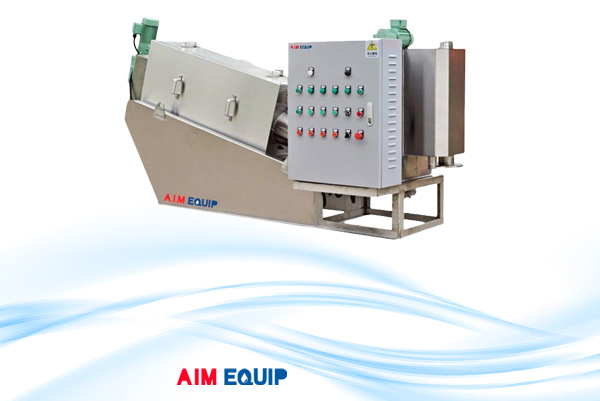
4. Filter Press Dewatering
A filter press is a batch process that uses high-pressure filtration to separate water from sludge. Sludge is pumped into a series of filter plates lined with filter cloths. The plates apply pressure, forcing water out while retaining the solid sludge in the form of cakes. This method is highly effective in achieving low moisture content but requires periodic cleaning and maintenance.
AIMEQUIP’s Automatic Filter Press is a highly efficient solid/liquid separation device that utilizes membrane filter plates, ensuring a high degree of dewatering and reliable performance.
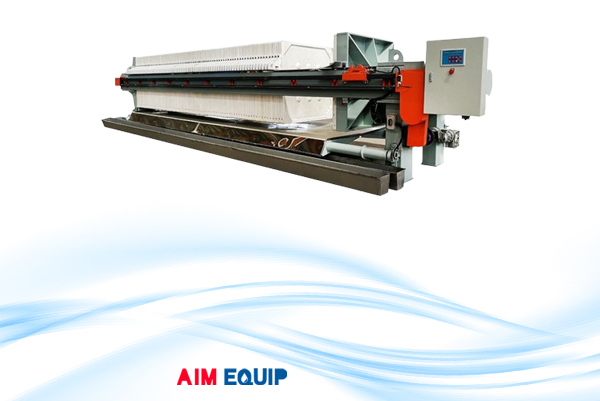
Factors Influencing Dewatering Efficiency
To achieve the best results in sludge dewatering, various factors must be considered:
- Sludge Composition: Organic and inorganic content affect dewatering performance.
- Polymer Conditioning: The addition of chemicals can enhance water separation.
- Equipment Selection: Choosing the right technology ensures optimal performance.
- Operational Practices: Regular maintenance and monitoring improve efficiency and longevity.
Challenges in Sludge Dewatering & Solutions
Despite its benefits, sludge dewatering presents challenges such as:
- High Moisture Content: Advanced filtration technologies and chemical additives can improve dewatering efficiency.
- Energy Consumption: Adopting energy-efficient equipment and automated systems can lower costs.
- Strict Disposal Regulations: Compliance with local environmental laws ensures proper sludge disposal and sustainability.
Industry Applications of Sludge Dewatering
Sludge dewatering plays a critical role in various industries, including:
- Municipal Wastewater Treatment Plants: Managing sewage sludge effectively.
- Food & Beverage Industry: Handling organic waste and wastewater.
- Pharmaceutical & Chemical Manufacturing: Ensuring safe disposal of industrial byproducts.
- Mining & Metal Processing: Reducing the environmental impact of mineral and metal waste.
Emerging Trends & Technologies in Sludge Dewatering
As technology advances, new innovations are improving the efficiency and sustainability of sludge dewatering. Some of the latest trends include:
- Automation & Smart Monitoring: AI-driven sensors optimize dewatering processes.
- Sustainable Dewatering Solutions: New eco-friendly chemicals enhance performance without harming the environment.
- Sludge-to-Energy Technologies: Converting dewatered sludge into biofuel or other energy sources.
Sludge dewatering is a fundamental process in wastewater treatment, offering cost savings, environmental benefits, and improved efficiency. By selecting the right dewatering method and investing in modern technologies, industries can optimize their waste management strategies while complying with regulations. AIMEQUIP provides cutting-edge sludge dewatering solutions, ensuring superior performance and sustainability in wastewater treatment applications.
For more information on sludge dewatering equipment and solutions, visit AIMEQUIP.

